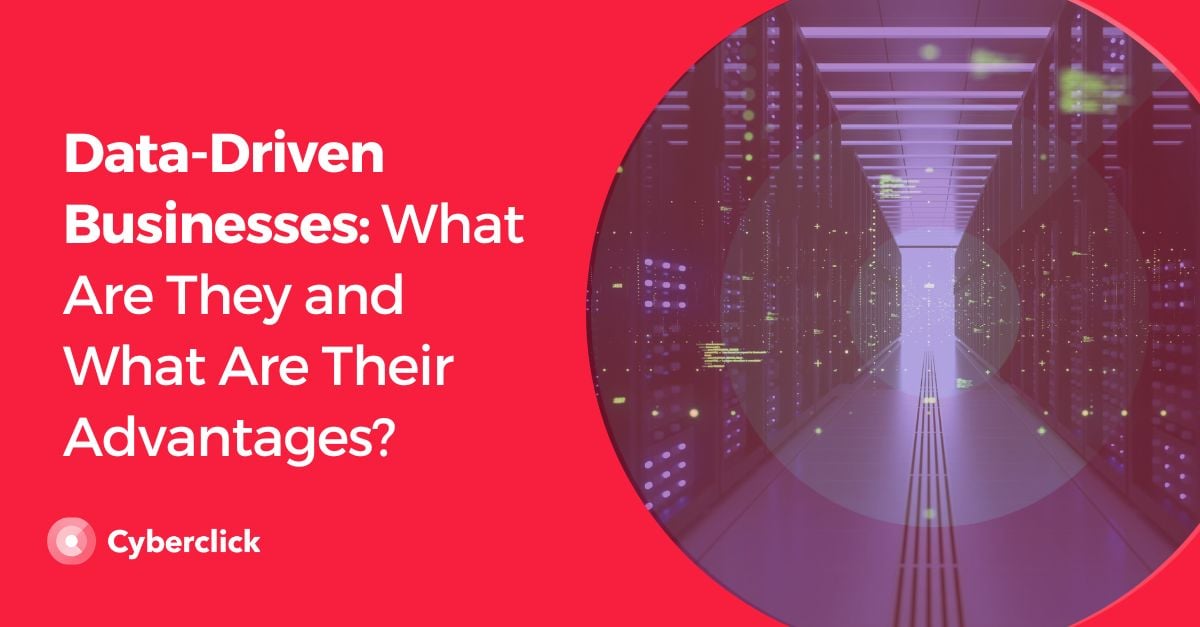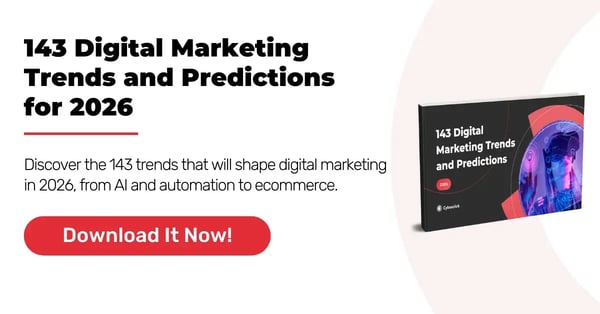The number of companies utilizing data-driven approaches is steadily rising each year, especially when it comes to marketing. Organizations have recognized that leveraging data effectively can significantly enhance their chances of success by enabling informed decision-making in their strategies. However, what exactly characterizes a data-driven company? Are all companies that work with data considered data-driven? How can your organization become one to amplify your data science efforts? In this article, we will provide you with insights and answers to these questions.

What Is a Data-Driven Company
A data-driven company is distinguished by its reliance on data analysis rather than subjective opinions, intuitions, or emotions of team members when making strategic decisions. In essence, these companies prioritize data science in their strategies and processes.
Advancements in technology have facilitated access to vast amounts of information, enabling companies to collect and analyze massive data sets. As a result, data-driven companies are better equipped to make informed decisions and accurately forecast market behavior.
Apart from the advantages mentioned earlier, data-driven companies can reap various other benefits, both internally and in the market. These include:
- Up-to-date information: Data-driven companies have access to real-time data, allowing them to stay current with market trends and make informed decisions based on the most recent information.
- Streamlined processes: By leveraging data, these companies can identify inefficiencies in their operations and streamline their processes to enhance productivity and optimize resource allocation.
- Increased productivity: Data-driven companies use data insights to identify bottlenecks in their workflows and implement data-backed solutions, resulting in increased productivity and improved overall performance.
- Enhanced market anticipation: By analyzing data, these companies can anticipate market changes and trends more accurately, helping them make proactive decisions and avoid potential economic losses.
- Improved customer acquisition and retention: Data-driven companies can leverage data to gain insights into customer preferences, behavior, and needs, allowing them to tailor their offerings and marketing strategies to attract and retain customers more effectively.
- Higher profits: Data-driven companies tend to generate more profits per employee and at a general level due to their ability to make informed decisions, optimize operations, and identify revenue-generating opportunities through data analysis.
- Cost savings: By leveraging data, these companies can identify cost-saving opportunities, such as optimizing supply chain operations, reducing waste, and optimizing pricing strategies, resulting in overall cost savings.
Types of Companies According to Their Data Science
Depending on the level of data science implementation, there are five types of organizations:
- Data Resistant organizations: These companies do not see data analysis as essential for their growth and do not implement changes in that regard.
- Data Aware organizations: Unlike Data Resistant organizations, these companies recognize the importance of data science but may not know how to effectively implement it.
- Data Guided organizations: These companies perform basic data analysis and draw conclusions from the data, but do not have a formal strategy in place.
- Data Savvy organizations: These companies strategically use data to understand the "why" behind the data and draw conclusions about consumer behavior.
- Data Driven organizations: In addition to the practices of Data Savvy companies, Data Driven organizations take their insights and conclusions to reality by implementing data-driven decisions into their operations and strategies.
It's common for companies to undergo evolution and change in their approach to data usage until they achieve an optimal and effective utilization of data. However, there are also some companies that may stagnate and fail to evolve over time, potentially hindering their ability to harness the full potential of data-driven decision making.
5 Indicators That a Company Is Data-Driven
Data Transparency
In a data-driven company, all team members, regardless of their role, have access to all types of data, including both positive and negative information, about the organization, customers, and the market. This open and transparent approach allows for informed decision-making based on a comprehensive understanding of the data landscape. It's important to recognize that negative data can also provide valuable insights and contribute to making informed decisions. Withholding or selectively showcasing only positive data can lead to skewed perspectives and hinder the company's ability to identify areas of improvement or address challenges effectively. Embracing all types of data, positive or not, is crucial for fostering a truly data-driven culture within the organization.
The Figure of a Data Science Professional
The role of a data scientist is pivotal in any data-driven company. These professionals are responsible for structuring and organizing the vast databases that organizations possess, utilizing their expertise in statistics, technology, and mathematics. They extract, compile, and process valuable information from data, making it accessible, understandable, and trustworthy for all members of the organization.
The demand for data scientists is rapidly increasing across various sectors, as companies recognize the importance of leveraging data for strategic decision-making. These professionals play a critical role in unlocking the insights hidden in data and driving data-informed strategies. Their expertise and skills are invaluable in maximizing the potential of data in driving business success in the current data-driven landscape.
Objectives Are Just Another Number
In a data-driven company, objectives are not set in abstract terms but are based on data-driven insights. These companies establish clear and precise objectives, incorporating numerical characteristics derived from data analysis.
For instance, in a non-data-driven company, an objective might be stated as "increase sales next year." However, in a data-driven company, the objective would be more specific, such as "increase sales by 34% from February to June." The former objective is vague and allows for broad interpretations of success, whereas the latter is specific, measurable, and provides a clear target.
Setting precise objectives based on data enables companies to have a clear benchmark for success. It allows them to accurately measure progress, evaluate the effectiveness of their strategies, and make data-informed decisions. Without leveraging data, companies may fall short in understanding the true impact of their efforts and miss opportunities for improvement. In contrast, data-driven companies can effectively track progress, make adjustments as needed, and optimize their performance to achieve their objectives with greater accuracy and success.
Opinions Are Backed by Data
In data-driven companies, team members' opinions are supported by data. Every contribution made by a company professional must be backed by relevant data, ensuring that decisions are made based on objective information rather than subjective opinions. This approach promotes objectivity and minimizes the influence of emotions, feelings, or personal opinions on the organization's direction. The objective is to avoid letting emotions or subjective perspectives dictate the course of the organization, and instead rely on data-driven decision-making for greater success.
Data at the Service of the Organization
While data is integral to the strategies of a data-driven company, the well-being of its human capital and the overall health of the organization take precedence. Data serves as a tool to drive the organization, rather than being the sole motivator for decisions. The company is not subservient to the data, but rather the data serves the organization's goals.
A data-driven enterprise acknowledges that decisions are influenced by multiple factors, not all of which can be quantified. While data provides valuable insights, there are often qualitative elements that also shape decision-making. A holistic approach that considers both data and other relevant factors is adopted, recognizing that the well-being of the company and its employees is a priority alongside the utilization of data.
How to Adopt a Data-Driven Approach
Transitioning a company into a data-driven enterprise is a gradual process that requires adaptation over time. While team members may generally be open to incorporating data science and understanding its significance, the challenge often lies in the digital transformation required for the organization to fully embrace data-driven practices. This transformation may entail significant financial and time investments, which can lead to reluctance in some companies.
If you find yourself in this situation, we would like to provide you with some tips that may be of great help.
Put the Smart Model Into Practice
SMART is an acronym that stands for Specific, Measurable, Achievable, Relevant, and Time-bound. It is a widely used model for setting clear and effective objectives. Here's how you can put the SMART model into practice in a data-driven company:
-
Specific
-
Measurable
-
Attainable
-
Relevant
-
Time based
The SMART methodology is very useful when defining objectives. According to it, a good objective is one that meets all these characteristics.
Democratize Access to Data
Not all team members need access to all information, but they should have access to the information necessary to perform their work effectively and contribute value.
Implement Data Governance
Data governance is based on the idea of establishing clear policies about how to use and manage the company's data, i.e., about the entire data lifecycle.
Lean on Good Data Analytics Tools
In order to implement data science in the best possible way, it is important to rely on digital data analysis platforms that help you move from raw data to valuable information expressed in an easy and concise way.
Which Sectors Have More Data-Driven Companies?
In terms of data-driven companies, certain sectors have embraced data analytics more than others. Banking, manufacturing, telecommunications, insurance, retail, automotive, and healthcare are among the sectors that have implemented data analytics to a significant extent. However, when it comes to notable companies in this space, Google, Amazon, Netflix, and Apple are undoubtedly at the forefront, with their innovative approaches to data-driven decision making.
Responsable de la estrategia de contenidos y visibilidad en Cyberclick, con enfoque Allbound y especialización en posicionamiento SEO, GEO y automatización con IA. Gestión avanzada del CRM con HubSpot: base de datos, workflows, lead nurturing, scoring y reporting. Experiencia en marketing digital, comunicación corporativa y periodismo, uniendo estrategia, creatividad y tecnología para captar y convertir leads cualificados.
Responsible for content and brand visibility strategy at Cyberclick, with an Allbound approach and specialization in SEO, GEO (Generative Engine Optimization), and AI-powered automation. Advanced HubSpot CRM management: database segmentation, workflows, lead nurturing, scoring, and reporting. Background in digital marketing, corporate communications, and journalism—combining strategy, creativity, and technology to attract and convert qualified leads.





.jpg)
Leave your comment and join the conversation